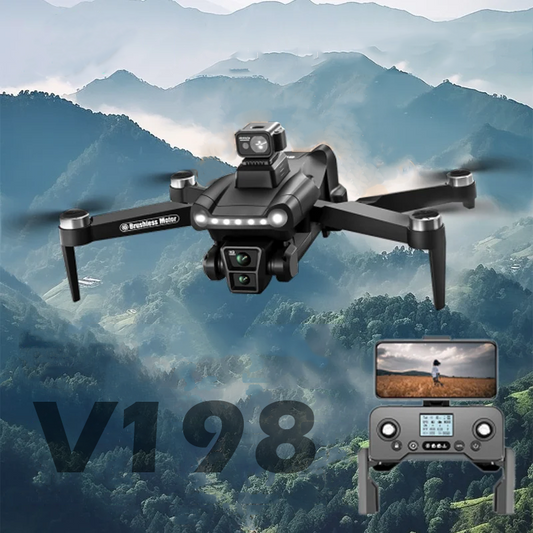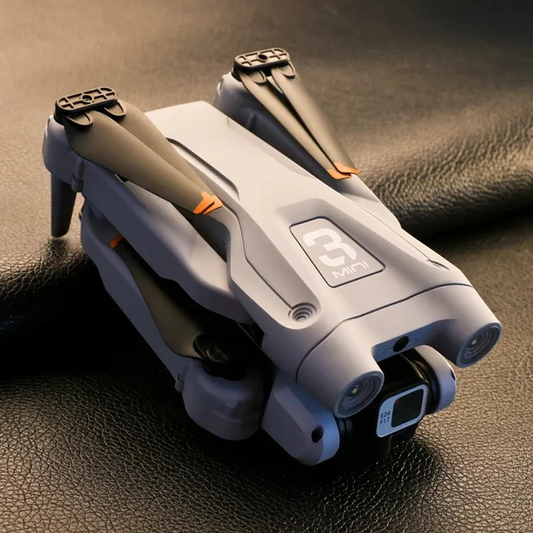How Drones are Enhancing the Study of Urban Ecology

Urbanization, the global shift towards city living, poses significant challenges to environmental sustainability. However, amidst the concrete jungles and bustling streets, there lies a realm of untapped potential for ecological study. Enter drones – the aerial guardians reshaping how we perceive and understand urban ecology. In this article, we delve into the transformative role of drones in enhancing the study of urban ecology, exploring their applications, benefits, and the future they promise.
Understanding Urban Ecology

Before diving into the impact of drones, let's grasp the essence of urban ecology. Urban ecology examines the interplay between organisms and their environment in urban settings. It encompasses diverse fields such as biodiversity conservation, ecosystem dynamics, and urban planning. With over half of the world's population residing in cities, understanding urban ecosystems is paramount for sustainable development and biodiversity preservation.
The Rise of Drone Technology

In recent years, drones have emerged as powerful tools in various industries, including environmental research. These unmanned aerial vehicles (UAVs) equipped with high-resolution cameras, sensors, and advanced mapping capabilities are revolutionizing how scientists study urban ecosystems. Unlike traditional methods that are often labor-intensive and limited in scope, drones offer unparalleled versatility and efficiency.
Applications in Urban Ecology
Drones are transforming every aspect of urban ecological research, from monitoring wildlife to mapping green spaces. Here's how they're making a difference:
i. Biodiversity Monitoring:

Drones provide researchers with bird's-eye views of urban habitats, enabling them to monitor wildlife populations with precision. From tracking migratory patterns to identifying nesting sites, drones offer invaluable insights into urban biodiversity dynamics.
ii. Habitat Mapping:

Traditional habitat mapping methods are time-consuming and sometimes inaccurate. Drones equipped with LiDAR (Light Detection and Ranging) technology can swiftly generate detailed 3D maps of urban landscapes, facilitating better land-use planning and habitat conservation efforts.
iii. Air Quality Assessment:

Urban environments are often plagued by air pollution, posing health risks to residents. Drones equipped with sensors can collect real-time data on air quality, helping authorities identify pollution hotspots and implement targeted mitigation strategies.
iv. Green Infrastructure Planning:

Green spaces such as parks and gardens play a crucial role in enhancing urban biodiversity and mitigating the urban heat island effect. Drones aid planners in assessing green infrastructure effectiveness, optimizing park design, and identifying areas in need of greening initiatives.
Benefits of Drone Technology

The adoption of drones in urban ecological research offers numerous advantages:
i. Cost-Effectiveness: Drones streamline data collection processes, reducing the need for extensive fieldwork and manual labor. This translates into significant cost savings for research projects, allowing scientists to allocate resources more efficiently.
ii. Time Efficiency: Traditional ecological surveys can take weeks or even months to complete. Drones can cover large areas in a fraction of the time, accelerating data collection and analysis without compromising accuracy.
iii. Accessibility: Urban environments pose unique challenges for researchers, from navigating dense urban jungles to accessing inaccessible areas. Drones overcome these barriers, providing researchers with access to hard-to-reach locations and aerial perspectives previously unattainable.
iv. Safety: Conducting ecological research in urban environments can be hazardous, especially in densely populated areas. Drones eliminate the need for researchers to enter potentially dangerous or inhospitable environments, enhancing safety while collecting valuable data.
The Future Outlook
As drone technology continues to evolve, the future of urban ecological research looks promising. From advancements in sensor technology to the development of autonomous drone swarms, the possibilities are endless. However, ethical considerations such as privacy concerns and wildlife disturbance must be addressed to ensure responsible drone use in environmental research.
In the quest to understand and mitigate the environmental impacts of urbanization, drones emerge as indispensable allies for ecologists and urban planners alike. Their ability to capture high-resolution data, navigate complex landscapes, and enhance efficiency is revolutionizing how we study and manage urban ecosystems. By harnessing the power of drone technology, we can unlock new insights into urban ecology, paving the way for a more sustainable and resilient urban future.
Explore a variety of drones at our online drone store.Happy Flying!









